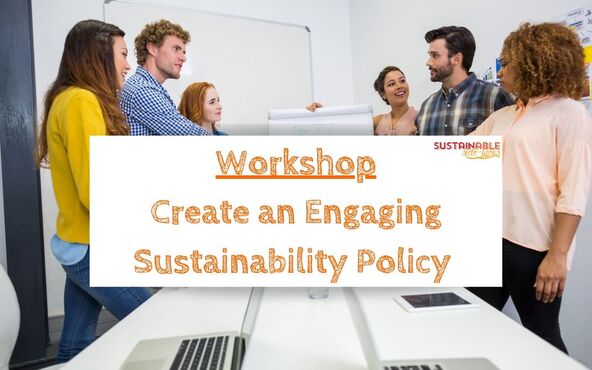Tips for engaging your team in your sustainability policy and strategy?
As businesses look to what the future holds and how they remain a ‘sustainable’ and viable business, we are advocating bringing the team into discussions and strategies on what a sustainable future, policy and strategy would look like, for people, planet and profit.
The concept of sustainability is composed of these three pillars; economic, environmental, and social—the 3 P’s – planet, people, profit; being in equilibrium. But the Coronavirus pandemic has highlighted the lack of equilibrium, inequality and work that needs to be done within nations organisations and industries.
Do people still care about post-coronavirusPre-coronavirus there was a sense of momentum and awakening on the environmental urgency with businesses and cities declaring climate emergencies and people joining protests around the world. And it seems that this has not diminished. If anything the global pandemic has focused people’s minds to what is important to them, according to a number of studies.
|
Among the study’s other highlights are:
- 78% of consumers believe companies could be doing more to help them make decisions that improve environmental outcomes.
- 65% of consumers expect companies to clearly explain environmental benefits on product labels or websites.
- 51% in UK and 55% of people in USA firmly believe that lifestyle changes to combat climate change will improve their quality of life, not worsen it. (Read the Full Forbes article)
Why engage your staff in your sustainability policy and strategy?
- Firstly, the respondents to these surveys are customers and staff in businesses around the world so it makes business and ethical sense to genuinely demonstrate your commitments and values to them.
- Secondly, by involving them in the process and tapping into their values and priorities they will feel more committed and invested in delivering the changes required, and in your business overall.
- Thirdly, they will identify opportunities for making efficiency savings and improvements from their area of your business.
- Fourthly, You will improve your staff retention and recruit the passionate and motivated new staff
- Engaging staff in the targets
- Track progress and share progress – monitor and measure regularly against reduction goals
- Stakeholders crave accountability and transparency (e.g. customers and staff)
- Get everyone on same page – staff and suppliers
- Supply chains are about people not processes
(From the book ‘The Future of Packaging: From Linear to Circular’ by Tom Szarky)
And the impact of this approach is that at Unilever:
- 76% of their 170,000 employees feel their role at work enables them to contribute to delivering to the sustainability agenda,
- Their employee engagement score is 80%.
- 50% of new employees joining from university cite Unilever’s ethical and sustainability policies as their primary motivation for joining the company (Read more on How Companies Can Tap Sustainability to Motivate Staff)
How to engage your staff?
If you have a large organisation or you want to gather more perspectives a questionnaire is also advised to capture people’s attitudes in a confidential way.
- What do they identify as the big issues in the world – what do they care about?
- What are the big issues in your industry and business?
- What is their vision of the ideal world that addresses all of these?
- Then using a prioritisation exercise, I go back over those issues and ask:
- How important is the issue (1-5)
- How much control do we have over the issue (1-5)
What if you think your staff don’t care or are not engaged?
- Why they are being asked to act
- What difference their actions will make
- That they are ‘part’ of something
- That other people are taking action, so collectively their actions will have an impact
- That the new behaviours fit within their current lifestyle and/ or are expected by society
Taking action on your sustainability policy and strategy
Furthermore, we are training people on the process we go through, so you can deliver a workshop with your team. This includes step-by-step instructions and all the documents required.
If you are not sure where to begin our on demand content takes you through a step-by-step process with all the documents and templates to create a policy and an action plan that inspires and engages.
Following this 1.5 hour workshop you will:
- Understand what motivates your team members
- Get buy-in from teams and departments
- Capture your team’s vision, values and concerns
- Identify your priorities
- Create targets and an action plan
There is a special freelancer rate of £59 and there is the option for feedback on your own policies that you create.


10% of all online courses go to grassroots charities.
20% of all consultancy and bespoke workshops go for rewilding.
50 free places are awarded to campaigners from underrepresented communities each year.






